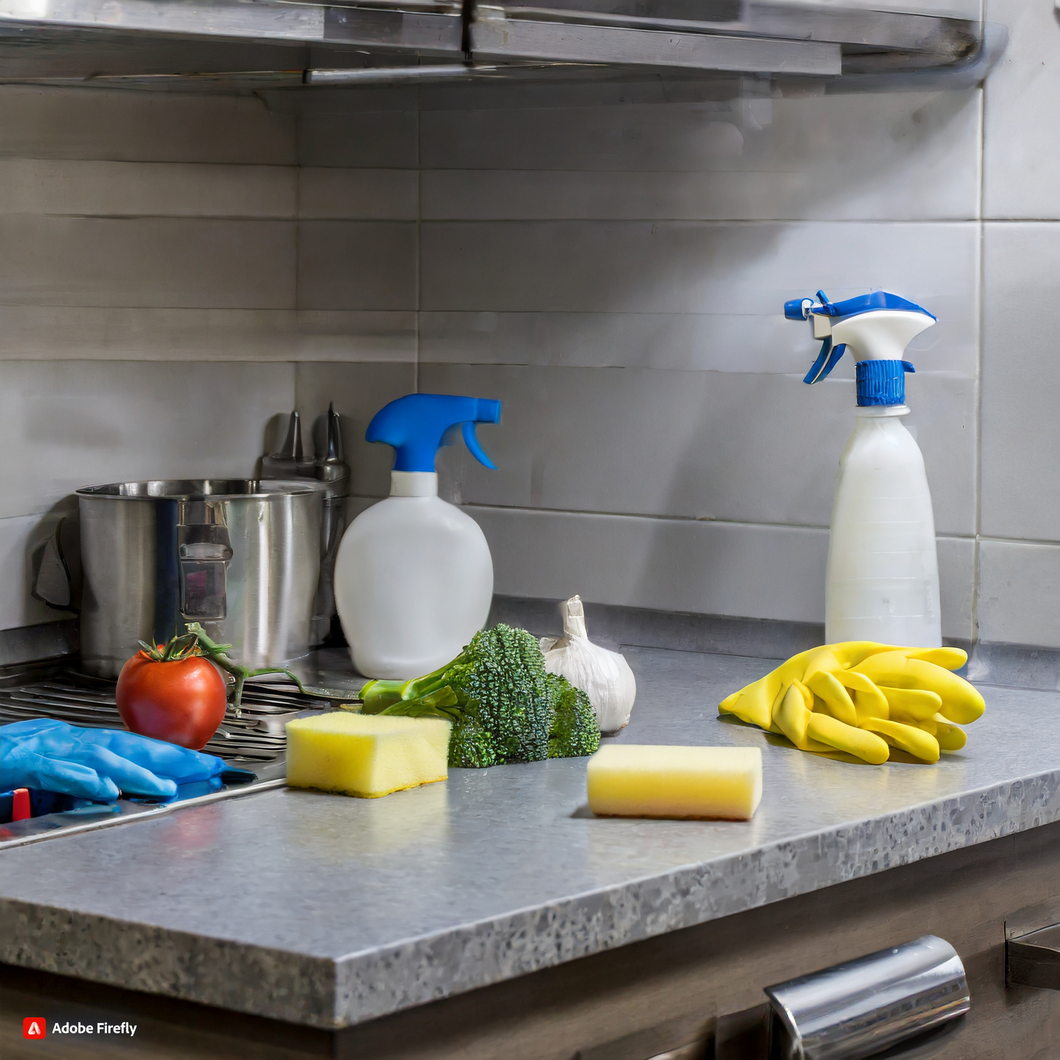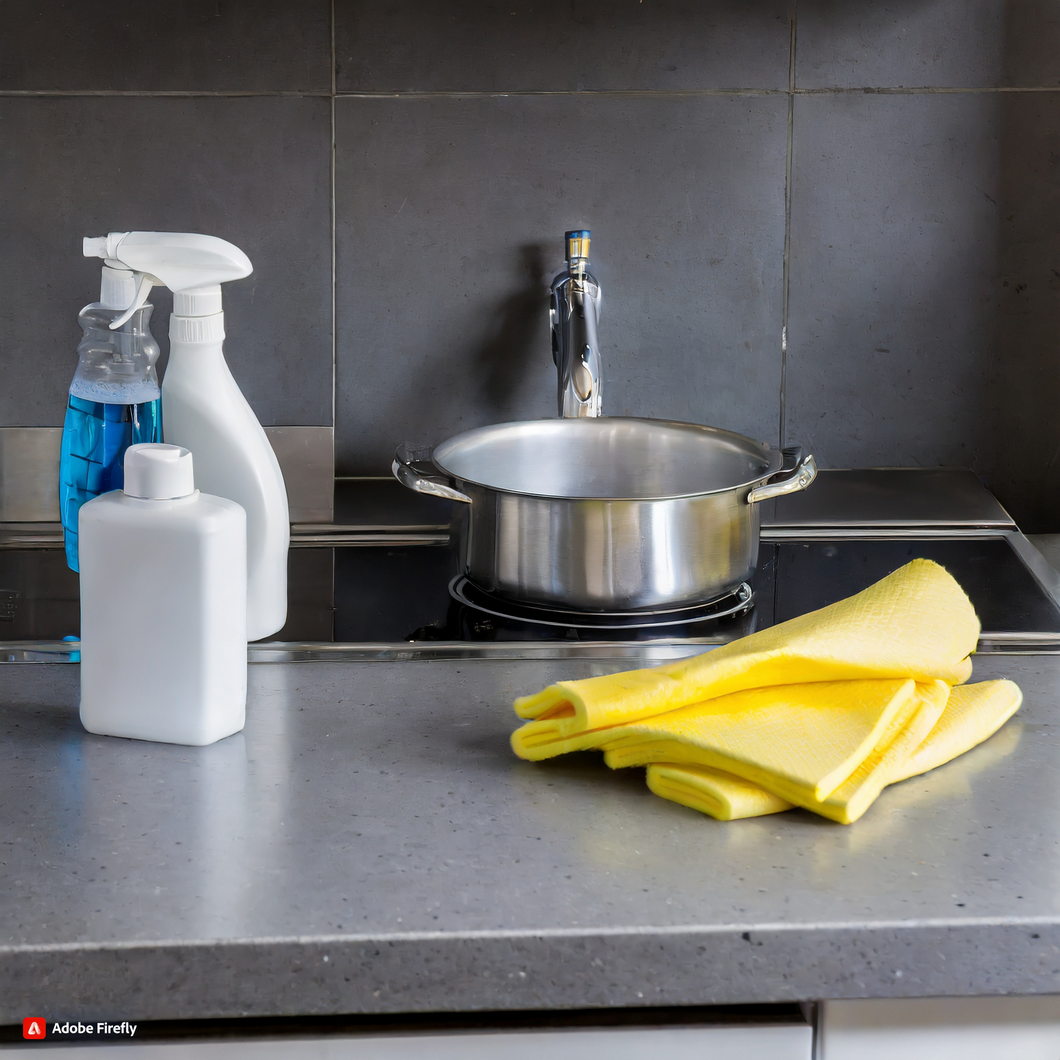Introduction
Welcome to Significance Kitchen Hygiene, Kitchen hygiene refers to the practices and measures taken to maintain a clean and sanitary environment in the kitchen. It involves proper cleaning, disinfection, and organization of kitchen tools, equipment, and surfaces to prevent the growth and spread of harmful bacteria and other contaminants. The significance of kitchen hygiene cannot be overstated, as it plays a crucial role in ensuring food safety and preventing foodborne illnesses. In this introduction, we will explore the importance of kitchen hygiene and its impact on our health and well-being.
The Importance of Maintaining a Clean Kitchen: Why Kitchen Hygiene Matters
When it comes to maintaining a clean and healthy home, the kitchen is often considered the heart of the house. It’s where we prepare and cook our meals, gather with family and friends, and create memories. However, with all the hustle and bustle that goes on in the kitchen, it’s easy for things to get messy and unhygienic. That’s why it’s crucial to prioritize kitchen hygiene and keep this important space clean and safe for everyone.

So, what exactly is kitchen hygiene, and why does it matter? Kitchen hygiene refers to the practices and habits that are necessary to maintain a clean and sanitary kitchen environment. This includes everything from washing dishes and wiping down countertops to properly storing and handling food. The significance of kitchen hygiene cannot be overstated, as it directly impacts our health and well-being.
One of the main reasons why kitchen hygiene matters is because it helps prevent the spread of bacteria and germs. The kitchen is a breeding ground for bacteria, with food particles and moisture providing the perfect environment for them to thrive. If left unchecked, these bacteria can contaminate our food and cause foodborne illnesses. By regularly cleaning and disinfecting surfaces, utensils, and appliances, we can reduce the risk of food contamination and keep ourselves and our loved ones safe.
In addition to preventing foodborne illnesses, maintaining a clean kitchen also helps to prevent cross-contamination. Cross-contamination occurs when bacteria from one food item is transferred to another, usually through contact with contaminated surfaces or utensils. This can happen easily in a busy kitchen, especially if proper hygiene practices are not followed. For example, using the same cutting board for raw meat and vegetables without washing it in between can lead to cross-contamination. By practicing good kitchen hygiene, we can minimize the risk of cross-contamination and keep our food safe to eat.
Another reason why kitchen hygiene is significant is that it helps to prolong the shelf life of our food. When we store food properly and keep our kitchen clean, we can prevent the growth of mold and bacteria that can cause food to spoil. This not only saves us money by reducing food waste but also ensures that we are consuming fresh and safe food.
Aside from the health benefits, maintaining a clean kitchen also has a positive impact on our mental well-being. A cluttered and dirty kitchen can be overwhelming and stressful, making it difficult to enjoy cooking and meal preparation. On the other hand, a clean and organized kitchen can be a calming and enjoyable space to work in. By keeping our kitchen clean, we can create a more pleasant and inviting environment for ourselves and our families.
Furthermore, practicing good kitchen hygiene can also save us time and effort in the long run. It’s much easier to clean up as we go and maintain a clean kitchen than to let things pile up and have to do a deep clean later on. By incorporating simple habits like wiping down surfaces after use and washing dishes immediately, we can save ourselves from spending hours scrubbing and disinfecting a dirty kitchen.
In conclusion, kitchen hygiene is crucial for maintaining a healthy and safe home. By preventing the spread of bacteria, reducing the risk of cross-contamination, prolonging the shelf life of our food, and creating a pleasant environment, we can see the significance of keeping our kitchen clean. So, let’s make it a priority to practice good kitchen hygiene and enjoy all the benefits it brings.
Preventing Foodborne Illnesses: The Role of Kitchen Hygiene in Food Safety
When it comes to food safety, one of the most important factors to consider is kitchen hygiene. The cleanliness of your kitchen can have a significant impact on the safety of the food you prepare and consume. In fact, the World Health Organization estimates that around 600 million people fall ill every year due to foodborne illnesses, with 420,000 of them resulting in death. These alarming statistics highlight the importance of maintaining proper kitchen hygiene to prevent the spread of foodborne illnesses.
So, what exactly is kitchen hygiene and why is it so significant? Kitchen hygiene refers to the practices and measures taken to keep the kitchen clean and free from harmful bacteria and other contaminants. This includes everything from washing your hands before handling food to properly storing and cleaning kitchen utensils and surfaces. By following proper kitchen hygiene practices, you can significantly reduce the risk of food contamination and the spread of foodborne illnesses.

One of the most crucial aspects of kitchen hygiene is handwashing. Our hands come into contact with countless surfaces and objects throughout the day, making them a breeding ground for bacteria. When preparing food, it is essential to wash your hands thoroughly with soap and warm water for at least 20 seconds before and after handling any food items. This simple yet effective practice can prevent the transfer of harmful bacteria from your hands to the food you are preparing.
Another important aspect of kitchen hygiene is the proper storage and handling of food. Raw meat, poultry, and seafood, in particular, can harbor harmful bacteria such as E. coli and Salmonella. It is crucial to store these items separately from other foods and to use separate cutting boards and utensils when handling them. Cross-contamination can occur when these items come into contact with other foods, leading to the spread of bacteria and potential foodborne illnesses.
In addition to proper storage and handling, it is essential to clean and sanitize all kitchen surfaces and utensils regularly. This includes countertops, cutting boards, knives, and any other tools used for food preparation. Bacteria can easily spread from these surfaces to food, so it is crucial to clean them with hot, soapy water after each use and sanitize them with a solution of one tablespoon of bleach to one gallon of water. It is also important to replace sponges and dishcloths regularly, as they can harbor bacteria and spread it to other surfaces.
Proper food storage is also a crucial aspect of kitchen hygiene. Perishable foods should be stored in the refrigerator at or below 40°F to prevent the growth of harmful bacteria. Leftovers should be stored in shallow containers and consumed within three to four days. It is also essential to defrost frozen foods in the refrigerator or microwave, rather than at room temperature, to prevent the growth of bacteria.
In addition to these practices, it is also essential to maintain a clean and clutter-free kitchen. Pests such as rodents and insects can carry and spread harmful bacteria, so it is crucial to keep your kitchen free from any potential entry points and to promptly clean up any spills or crumbs. Regularly emptying and cleaning your garbage can also prevent the attraction of pests.
In conclusion, kitchen hygiene plays a significant role in preventing foodborne illnesses. By following simple practices such as handwashing, proper food storage and handling, and regular cleaning and sanitizing, you can significantly reduce the risk of food contamination and the spread of harmful bacteria. So, the next time you step into your kitchen, remember the importance of maintaining proper kitchen hygiene for the safety of yourself and your loved ones.
Creating a Healthy Home: How Kitchen Hygiene Impacts Overall Well-Being
When it comes to maintaining a healthy home, many people focus on things like dusting, vacuuming, and disinfecting surfaces. While these are all important aspects of keeping a clean and healthy living space, one area that often gets overlooked is the kitchen. However, kitchen hygiene is crucial for not only keeping your home clean, but also for promoting overall well-being.
The kitchen is often referred to as the heart of the home, and for good reason. It is where we prepare and consume our meals, gather with family and friends, and create memories. But it is also a place where bacteria and germs can thrive if proper hygiene practices are not followed. In fact, studies have shown that the kitchen can be one of the dirtiest places in a home, with more bacteria present than even the bathroom.
So, what exactly is kitchen hygiene and why is it so important? Kitchen hygiene refers to the practices and habits that are necessary to maintain a clean and safe kitchen environment. This includes things like washing your hands before and after handling food, properly storing and handling food, and regularly cleaning and disinfecting surfaces and utensils.
One of the main reasons why kitchen hygiene is so significant is because it directly impacts our health. The kitchen is where we prepare and consume our food, and if proper hygiene practices are not followed, it can lead to foodborne illnesses. These illnesses can range from mild stomach discomfort to more serious conditions such as salmonella or E. coli. By practicing good kitchen hygiene, we can reduce the risk of these illnesses and keep ourselves and our families healthy.
In addition to promoting physical health, kitchen hygiene also plays a role in our mental well-being. A cluttered and dirty kitchen can create a stressful and chaotic environment, making it difficult to relax and enjoy meals. On the other hand, a clean and organized kitchen can promote a sense of calm and make meal preparation a more enjoyable experience. By keeping our kitchens clean and hygienic, we can create a more positive and peaceful atmosphere in our homes. Read easy Healthy Lunch for Weight Loss.
Another important aspect of kitchen hygiene is preventing cross-contamination. Cross-contamination occurs when bacteria from one food item is transferred to another, potentially causing foodborne illness. This can happen through improper handling of raw meats, using the same cutting board for different types of food, or not washing hands between handling different foods. By following proper hygiene practices, such as washing hands and using separate cutting boards for raw meats and other foods, we can prevent cross-contamination and keep our food safe to eat.
Furthermore, maintaining good kitchen hygiene can also save us money in the long run. By regularly cleaning and disinfecting surfaces and utensils, we can prevent the growth of bacteria and mold, which can lead to food spoilage. This means less food waste and fewer trips to the grocery store, ultimately saving us money. Additionally, by properly storing and handling food, we can also extend its shelf life and reduce the risk of food going bad.
In conclusion, kitchen hygiene is a crucial aspect of creating a healthy home and promoting overall well-being. By following simple practices such as washing hands, properly storing and handling food, and regularly cleaning and disinfecting surfaces, we can keep our kitchens clean and safe. Not only does this help prevent foodborne illnesses, but it also promotes a more positive and peaceful environment in our homes. So, the next time you’re in the kitchen, remember the significance of kitchen hygiene and make it a priority in your daily routine. Your health and well-being will thank you.
Q&A – Significance Kitchen Hygiene
1. Why is kitchen hygiene important?
Kitchen hygiene is important because it helps prevent the spread of harmful bacteria and germs that can cause foodborne illnesses. It also ensures that food is prepared and stored in a clean and safe environment, reducing the risk of contamination.
2. How does kitchen hygiene impact food safety?
Proper kitchen hygiene practices, such as washing hands, cleaning surfaces, and storing food properly, are essential for maintaining food safety. Failure to maintain good kitchen hygiene can lead to the growth and spread of bacteria, which can cause food poisoning and other illnesses.
3. What are some key practices for maintaining kitchen hygiene?
Some key practices for maintaining kitchen hygiene include washing hands before and after handling food, regularly cleaning and sanitizing surfaces and utensils, storing food at the correct temperatures, and properly disposing of food waste. It is also important to regularly clean and maintain kitchen appliances, such as refrigerators and ovens, to prevent the growth of bacteria.
Conclusion for Significance Kitchen Hygiene

In conclusion for Significance Kitchen Hygiene, maintaining proper kitchen hygiene is crucial for ensuring the safety and health of individuals who consume food prepared in the kitchen. It helps prevent the spread of harmful bacteria and diseases, reduces the risk of food contamination, and promotes overall cleanliness and sanitation. By following good kitchen hygiene practices, we can create a safe and healthy environment for cooking and eating, leading to a better quality of life. Therefore, it is essential to prioritize kitchen hygiene to protect ourselves and our loved ones from potential health hazards.
Please follow us on linkedin. You can learn all best canadian food recipes you can check our Culinary 1TouchFood Youtube and Telegram 1TouchFood page. Don’t forget Fighting Obesity Magazine and Radio Cooking.

